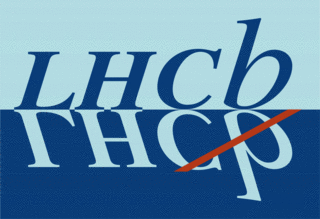MinimumBias primary dataset in RECO format from the 0.9 TeV Commissioning run of 2010 (/MinimumBias/Commissioning10-07JunReReco_900GeV/RECO)
/MinimumBias/Commissioning10-07JunReReco_900GeV/RECO, CMS collaboration
Cite as: CMS collaboration (2019). MinimumBias primary dataset in RECO format from the 0.9 TeV Commissioning run of 2010 (/MinimumBias/Commissioning10-07JunReReco_900GeV/RECO). CERN Open Data Portal. DOI:10.7483/OPENDATA.CMS.1R58.OMBD
Dataset Collision CMS 0.9TeV pp CERN-LHC
Description
MinimumBias primary dataset in RECO format from the 0.9 TeV Commissioning run of 2010. This dataset includes the data from the CASTOR calorimeter, which covers the very forward region in the CMS experiment (-6.6 < eta < -5.2).
The list of validated runs, which must be applied to all analyses, can be found in
CMS list of validated runs Commissioning10-May19ReReco_900GeV.json
Dataset characteristics
19958247 events. 563 files. 1.7 TiB in total.System details
FT_R_42_V10A::AllCMSSW_4_2_8_lowpupatch1
Recommended container image for analyses is available in the following locations (see guide):
docker.io/cmsopendata/cmssw_4_2_8_lowpupatch1-slc5_amd64_gcc434:latestgitlab-registry.cern.ch/cms-cloud/cmssw-docker-opendata/cmssw_4_2_8_lowpupatch1-slc5_amd64_gcc434:latest
How were these data selected?
During the Commissionning run, events were directed to this primary dataset through several different HLT trigger paths, not only through MinimumBias-like triggers.
How were these data validated?
During data taking all the runs recorded by CMS are certified as good for physics analysis if all subdetectors, trigger, lumi and physics objects (tracking, electron, muon, photon, jet and MET) show the expected performance. Certification is based first on the offline shifters evaluation and later on the feedback provided by detector and Physics Object Group experts. Based on the above information, which is stored in a specific database called Run Registry, the Data Quality Monitoring group verifies the consistency of the certification and prepares a json file of certified runs to be used for physics analysis. For each reprocessing of the raw data, the above mentioned steps are repeated. For more information see:
CMS data quality monitoring: Systems and experiences
The CMS Data Quality Monitoring software experience and future improvements
The CMS data quality monitoring software: experience and future prospects
How can you use these data?
You can access these data through the CMS Virtual Machine. See the instructions for setting up the Virtual Machine and getting started with CASTOR calorimeter data in
How to install the CMS Virtual Machine
Analysis recipe to use CASTOR objects with 2010 CMS OpenData
Disclaimer
The open data are released under the Creative Commons CC0 waiver. Neither the experiment(s) ( CMS ) nor CERN endorse any works, scientific or otherwise, produced using these data. All releases will have a unique DOI that you are requested to cite in any applications or publications.






